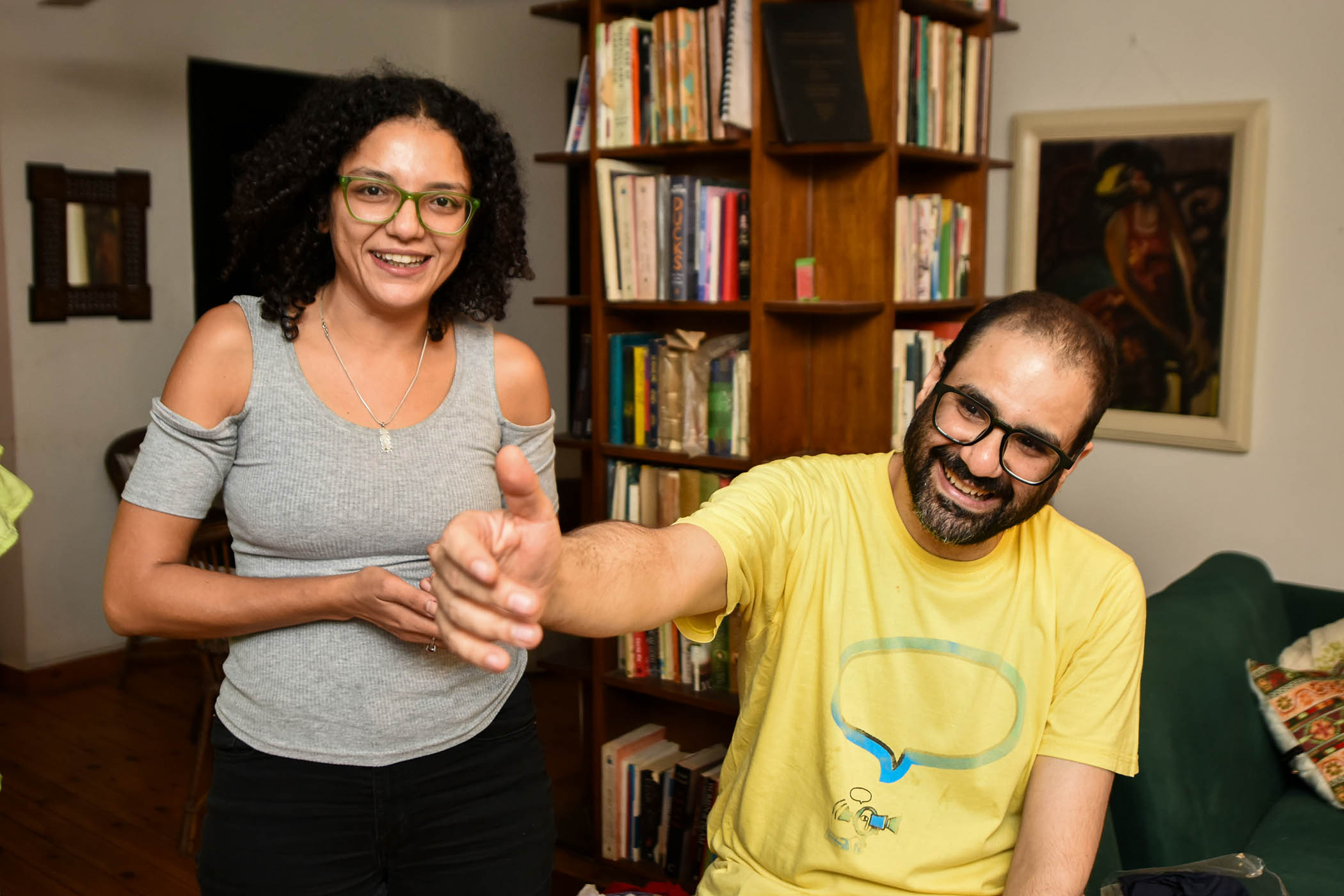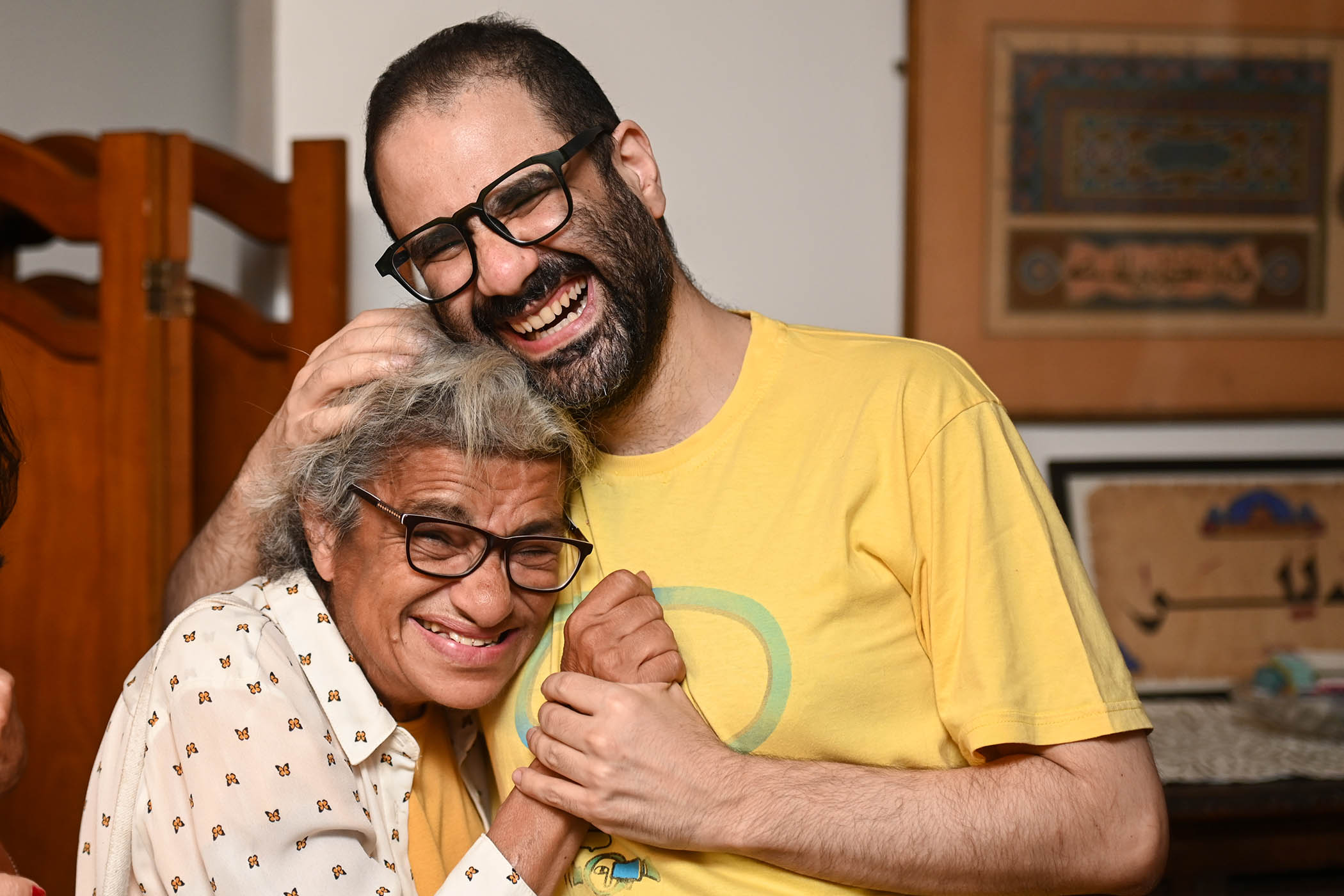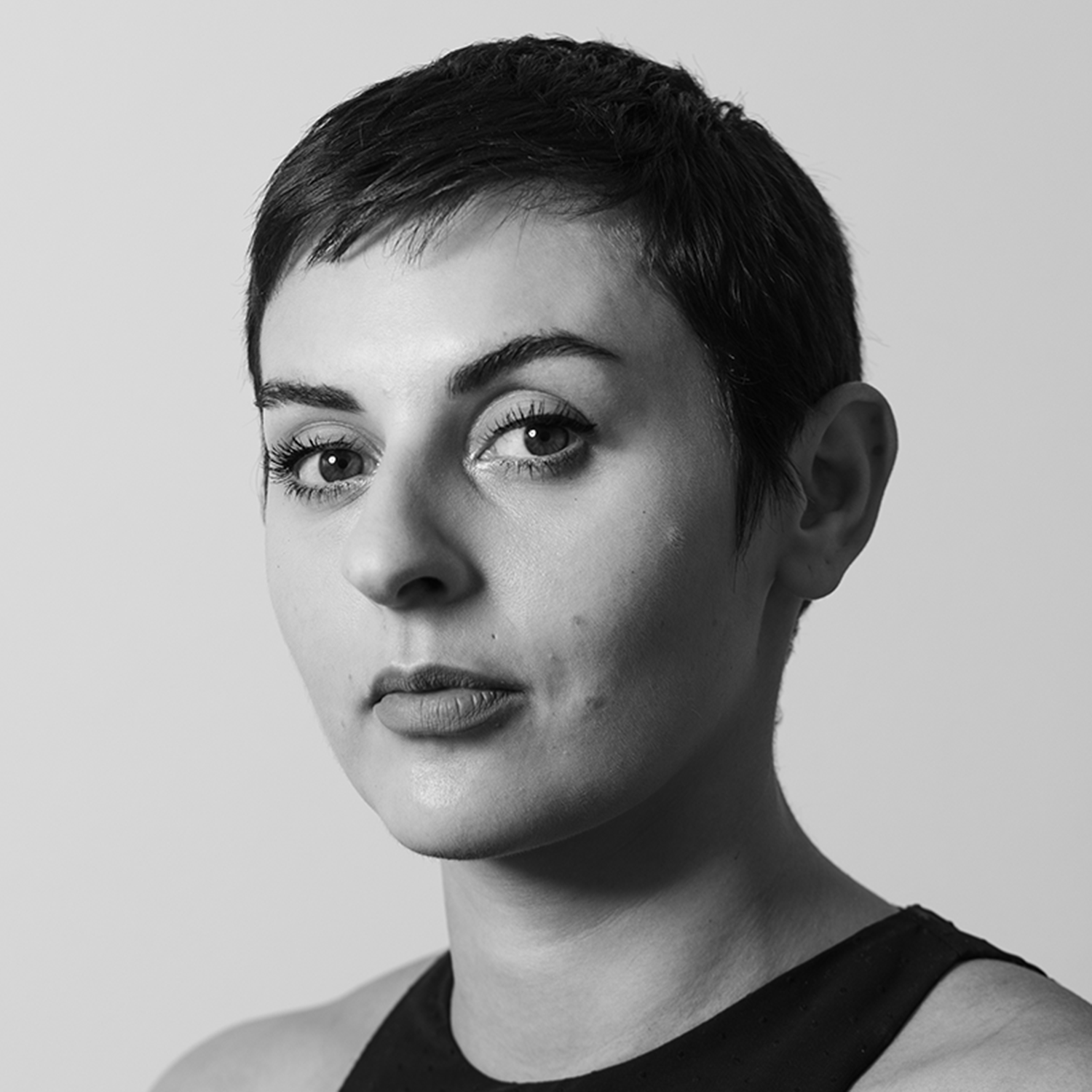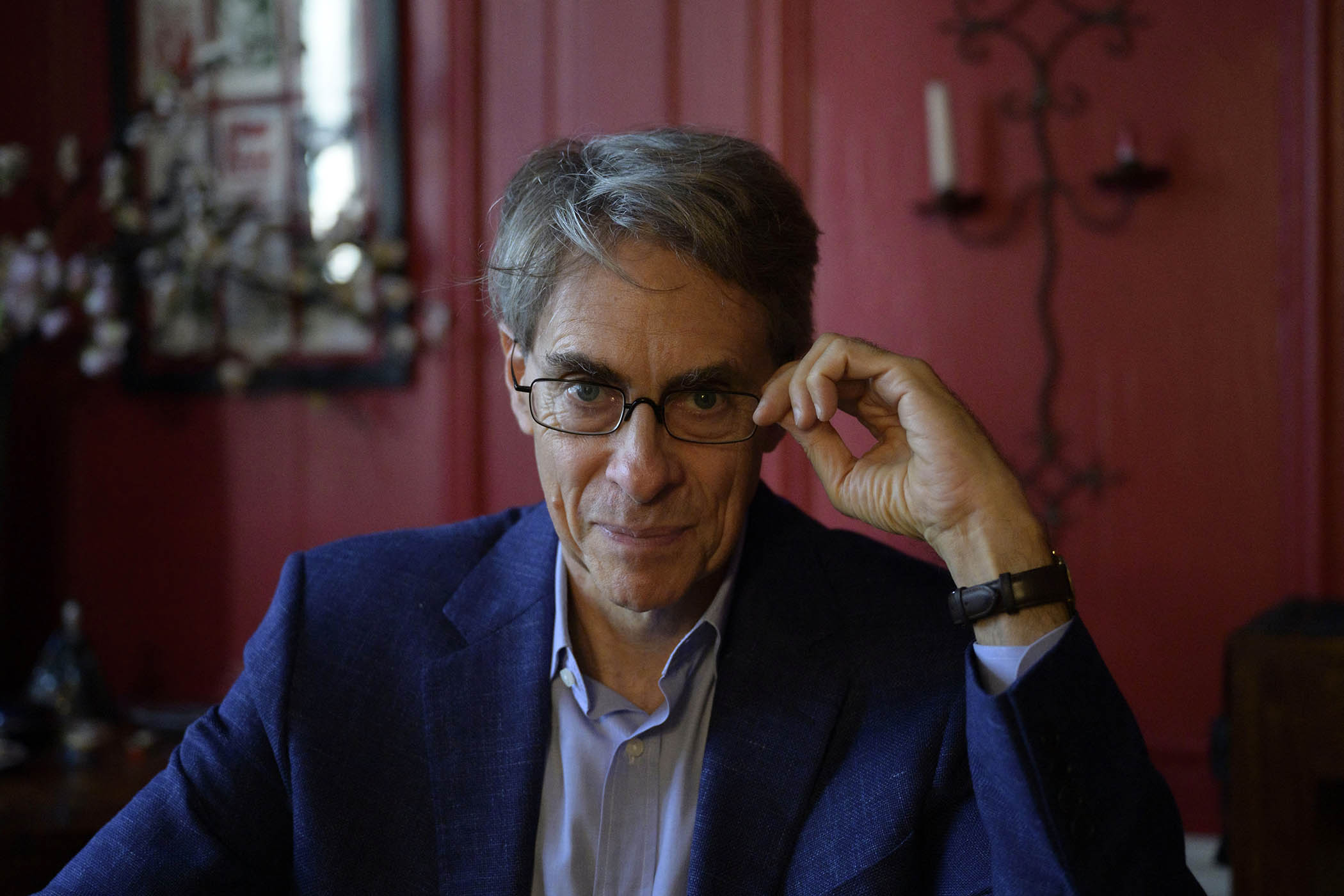After years in maximum security prisons, enduring torture, hunger strikes and isolation, Alaa Abd el-Fattah arrived home shortly after midnight on Tuesday to find a locked door and no one there.
News that the British-Egyptian pro-democracy campaigner had suddenly received a pardon from president Abdel Fatah al-Sisi had spread hours earlier. His family and a crowd of supporters had gone to wait outside the remote desert prison on the capital's outskirts expecting to see the veteran activist and author emerge through its gates. “OMG I can't believe we get our lives back!” his sister Sanaa Seif posted on X.
Instead, the Middle East’s most notorious prisoner of conscience had been covertly driven to the same Cairo police station where he was abruptly arrested one night six years ago – and released.
Abd el-Fattah walked freely on the streets of his hometown for the first time in years, and arrived at the door of his empty family home. Cheerful despite spending most of the past 12 years incarcerated, he weighed up knocking at a friend’s place or searching the coffee shops that were once the hangouts for Egyptian revolutionaries in downtown Cairo. He didn’t yet know that these had been swept away by the state in the years he’d been detained.
Instead, he found a helpful neighbour with a phone. He called his aunt, the author Ahdaf Soueif, in London to ask if anyone had a key. His family raced back from the prison and began celebrations to welcome him home.
“Fundamentally, as a family, we all really believed there was never any intention of releasing Alaa,” said his cousin Omar Robert Hamilton. “So in a way, we were all locked in this together with him. Still it has never really felt like there’s any choice in this, other than to fight for him – to try and get him out of this nightmare that seemed like it was going to go on for ever.”
A figurehead of Egypt’s 2011 uprisings that toppled former dictator Hosni Mubarak, Abd el-Fattah became a symbol of resistance to dictatorships everywhere through his writing and activism. He retains the strange accolade of being arrested by every government in Egypt’s modern history, and was detained after Sisi swept to power in a military coup in 2013 for violating a law banning unauthorised protests.
Even during a brief period of relative freedom in 2019, Abd el-Fattah was still forced to spend each night sleeping in his local police station. He was arrested there during a sweep of notable activists during a brief spate of anti-government protests, imprisoned again, and later charged with terrorism offences for having shared a social media post about torture in prisons.
Sisi’s regime has shown no tolerance for dissent of any kind. A sprawling and terrifying police state has swept up activists, journalists and even those who simply dared to post criticisms on social media into growing numbers of prisons.
Rights groups estimate that the Egyptian authorities have jailed tens of thousands of political prisoners since Sisi came to power, in a system often described as a “rotating door”, designed to keep even those freed fearing rearrest. In the days since Abd el-Fattah’s release, a prominent journalist has been rearrested and another longtime activist was summoned for interrogation despite receiving a presidential pardon two years ago.
Newsletters
Choose the newsletters you want to receive
View more
For information about how The Observer protects your data, read our Privacy Policy
The crushing brutality of Egypt’s labyrinthine detention system is designed to break its inmates. Abd el-Fattah did everything he could to resist. He published a book of essays, You Have Not Yet Been Defeated, which includes some smuggled out of the maximum security facility where for months he was denied books, pens and paper.

Abd El-Fattah with his sister Sanaa Seif
After he gained British citizenship through his mother, the mathematician Laila Soueif, while incarcerated in 2021, Abd el-Fattah and his family worked to spur the British government to act.
In 2022 he staged a months-long hunger strike as Egypt prepared to host the COP27 climate conference, and his sister Sanaa Seif began a sit-in outside the Foreign Office in London. By the time delegates, including then-prime minister Rishi Sunak, arrived in Egypt, Abd el-Fattah had escalated to refusing water. It almost killed him. Despite pleas from the British government and international pressure, he remained behind bars, later renouncing his hunger strike so he could stay alive.
Then in September last year, when Abd el-Fattah had completed five years of his prison sentence, Soueif launched her own hunger strike to pressure Keir Starmer’s government to do more to free her son. The 69-year-old grandmother lost more than a third of her bodyweight, but continued a daily sit-in outside the gates to Downing Street. She eventually ended the hunger strike to save her own life. Abd el-Fattah had joined her on hunger strike from inside prison once again.
“There were many times last summer where I felt it was truly, rationally possible for multiple people to die,” said Hamilton. “Laila could have died, and I think if that had happened, Alaa would have died on hunger strike in prison. If she had died there was no way he would stop.
“Certainly I think there were points where it was hard to see a route into the future that wasn’t a total disaster.”
Despite the sustained pressure on the British government, what tipped the balance to encourage Sisi to issue a presidential pardon remains unclear. Foreign secretary Yvette Cooper has said only that the government welcomes this news, and that “we look forward to Alaa being able to return to the UK, to be reunited with his family”.
Abd el-Fattah took his first dawn walk in more than a decade by the Nile. The next day he told his sister Mona during an outing that he could feel the sun on his skin for the first time in years.
Yet there is a risk he could remain in a new kind of prison, one where he is prevented from leaving Egypt. Abd el-Fattah has emerged from prison into a changed world, one where the authoritarianism and disinformation he warned against are on the rise – but by offering his long-awaited thoughts on this he risks rearrest until he can leave Egypt.
“For us, as the campaign, as his family, this is only really over once Alaa is in Brighton with his son,” said Hamilton. “This whole story doesn't end until then.”
Photographs by Sayed Hassan/Getty Images



